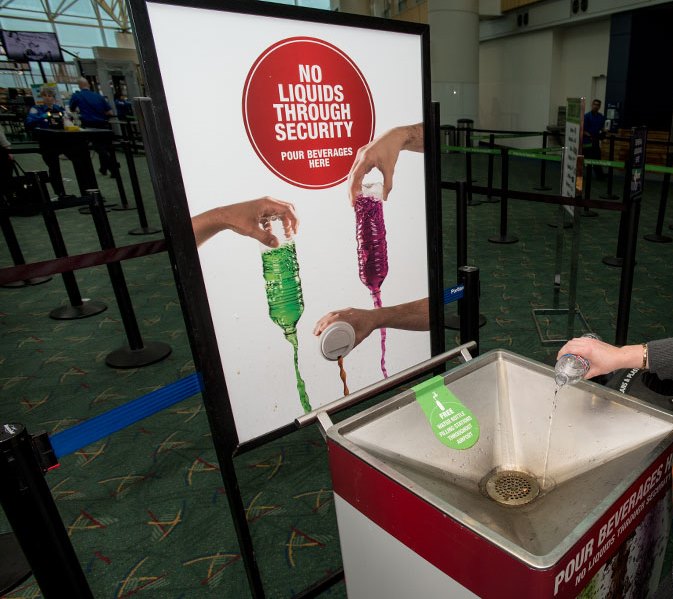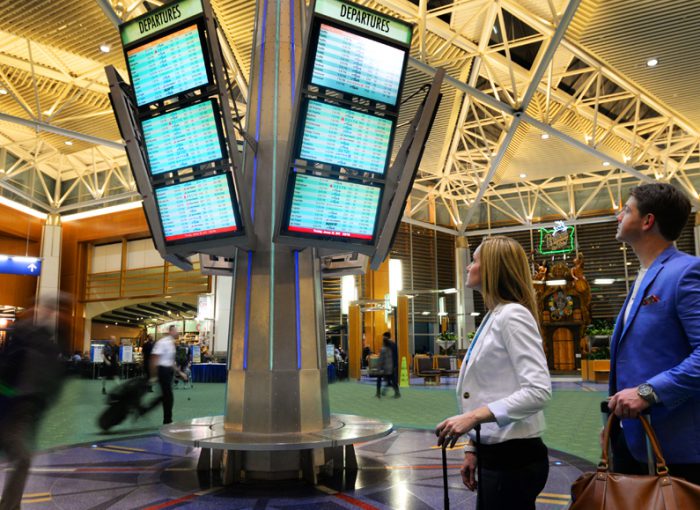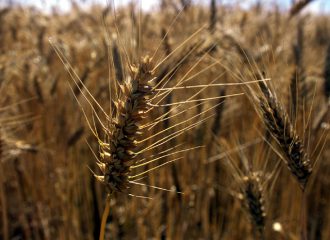When it comes to taking care of our planet, small actions make a big difference. Here are 10 ways you can minimize your impact on the planet while traveling at Portland International Airport.
1. Bring a Water Bottle
On average, PDX travelers save over 5,000 plastic bottles a day by using water stations to refill personal containers.
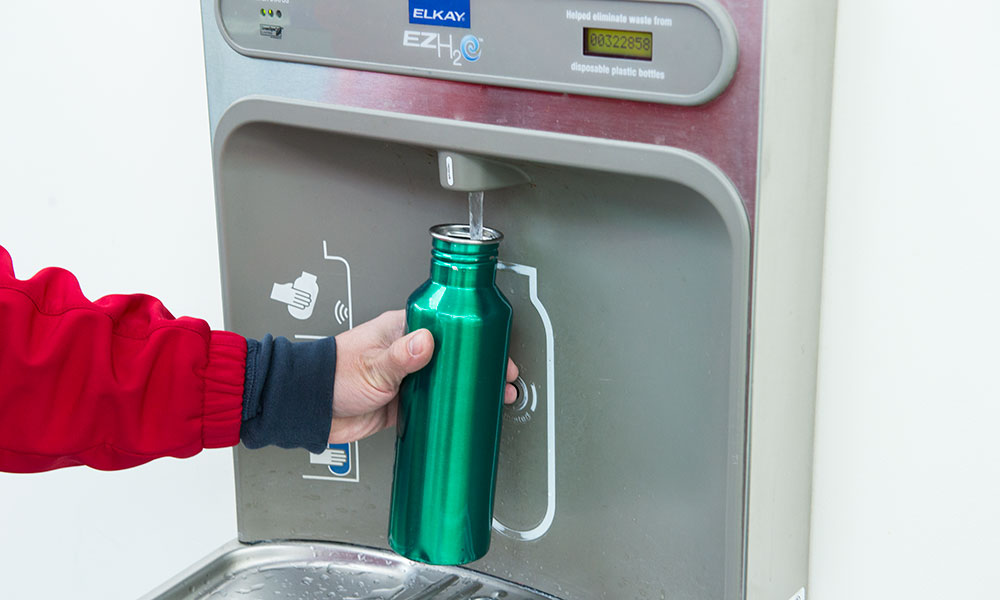
2. Compost Your Leftovers
Look for composting stations on Concourse D. Instead of a landfill, this organic material goes to an anaerobic digestion facility where it is turned into biogas and fertilizer. PDX generated 284 tons of compost last year.
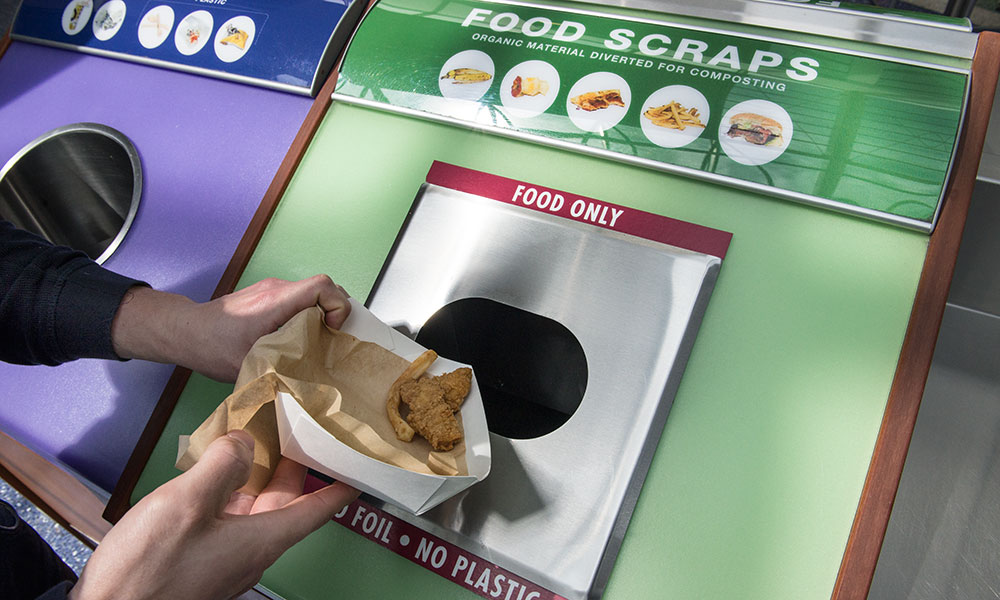
3. Ride MAX Light Rail
Approximately 1.3 million people, including both travelers and PDX employees, used TriMet’s MAX Red Line to get to the airport in 2016.
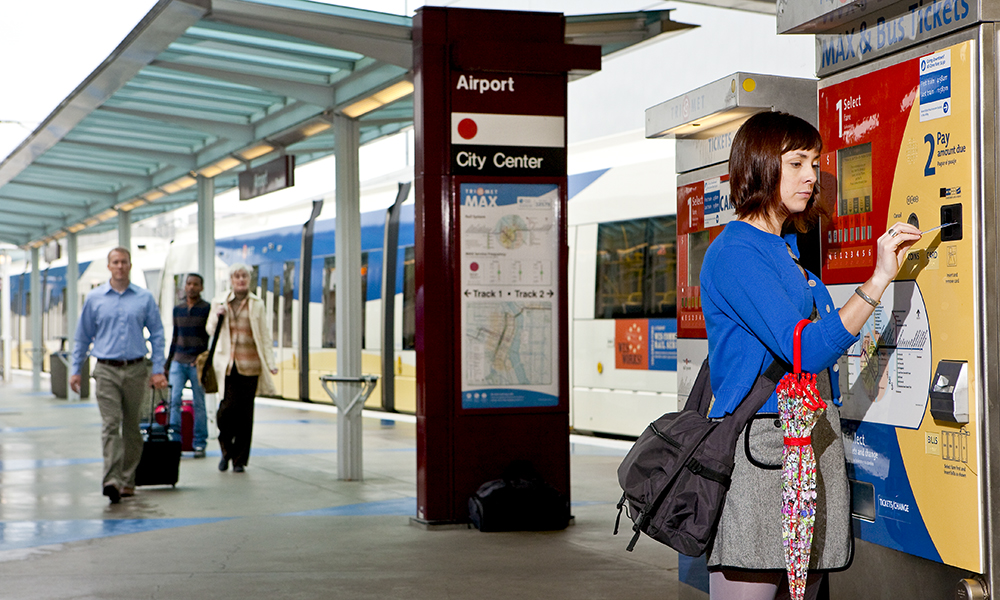
4. Bike to PDX
Commute to the airport by bike and take advantage of our free onsite parking. Nearly half of those bicycling to PDX say they ride between one and five times a week.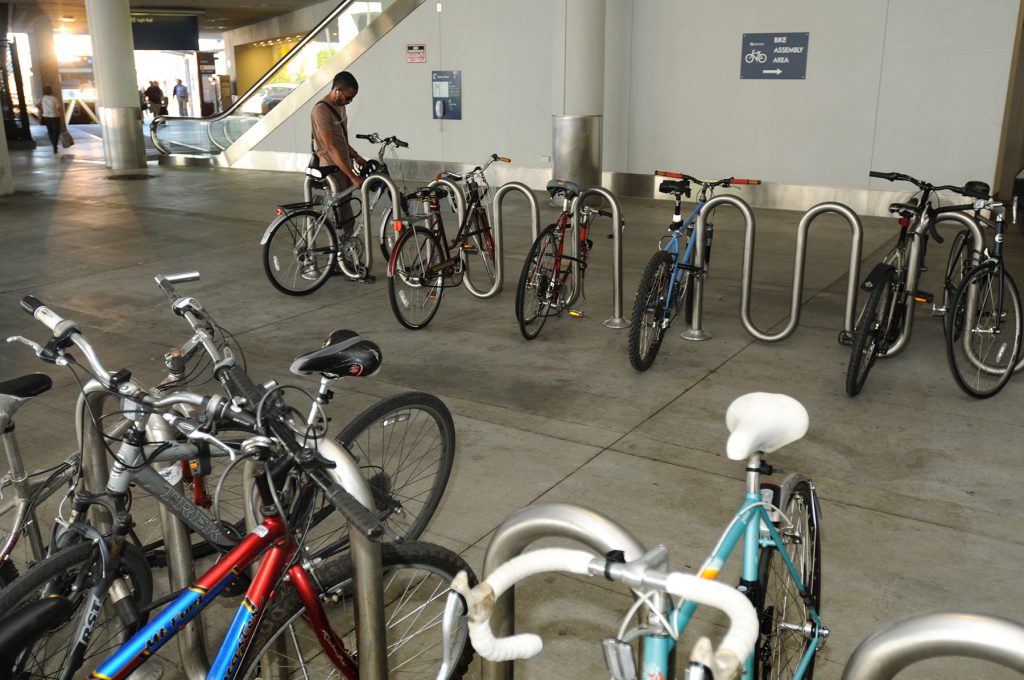
5. Flush Up to Save Water
Restroom flush valves use 1.1 gallons in the “up” position and 1.6 gallons in the “down” position. Just one in every five uses of “up” saves more than 2.9 million gallons of water per year.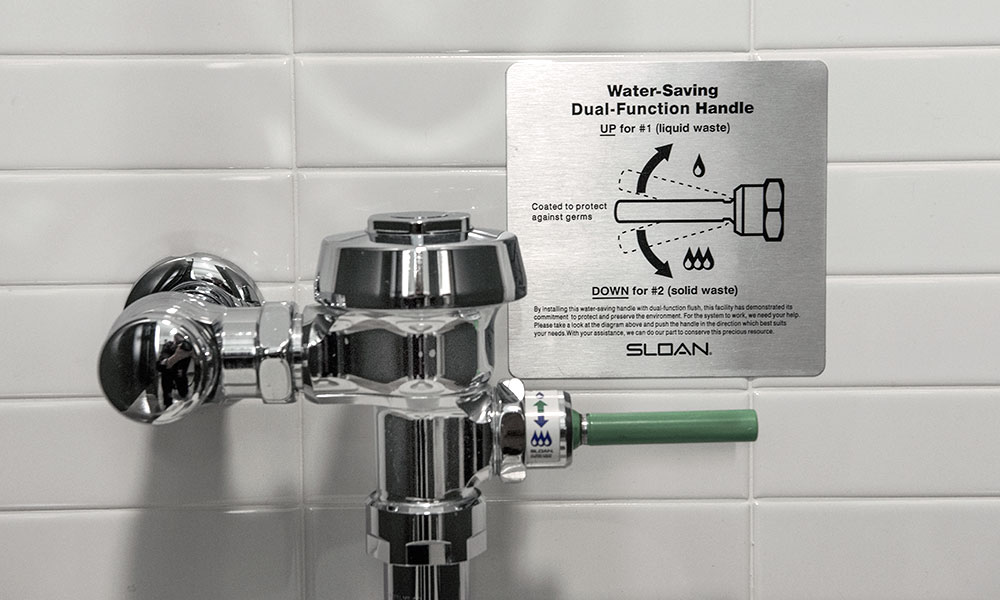
6. Help Test Hand Dryers
Reduce landfill waste from paper towels by trying the new hand dryers we’re testing in restrooms near Gate D2. Tell us your favorite at lesswaste@portofportland.com.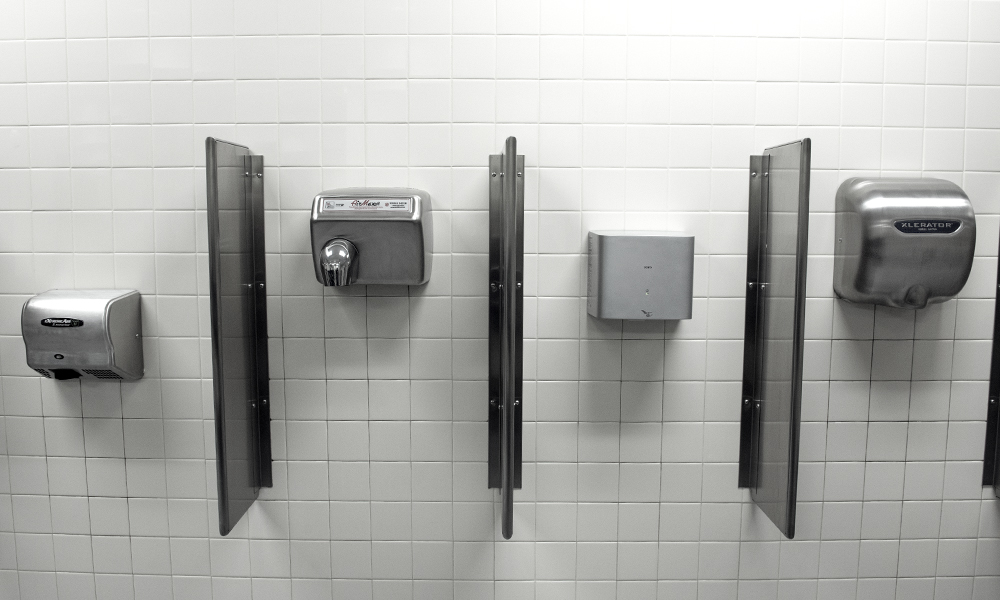
7. Use Revolving Doors
When traditional doors swing open, the average energy loss is equivalent to 1.3 hours of light from a desk lamp. Using revolving doors minimizes air exchange and maximizes energy efficiency.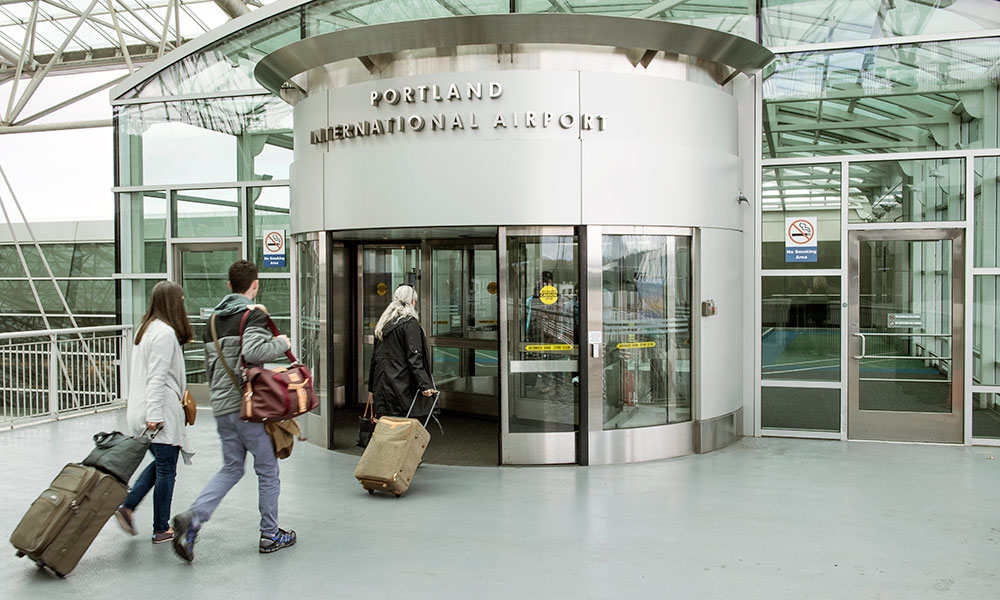
8. Grab a Green Plate
More than 20 percent of waste in the PDX food cart area is generated by single-use takeout containers. Participate in our green (reusable) plate pilot program and reduce landfill waste.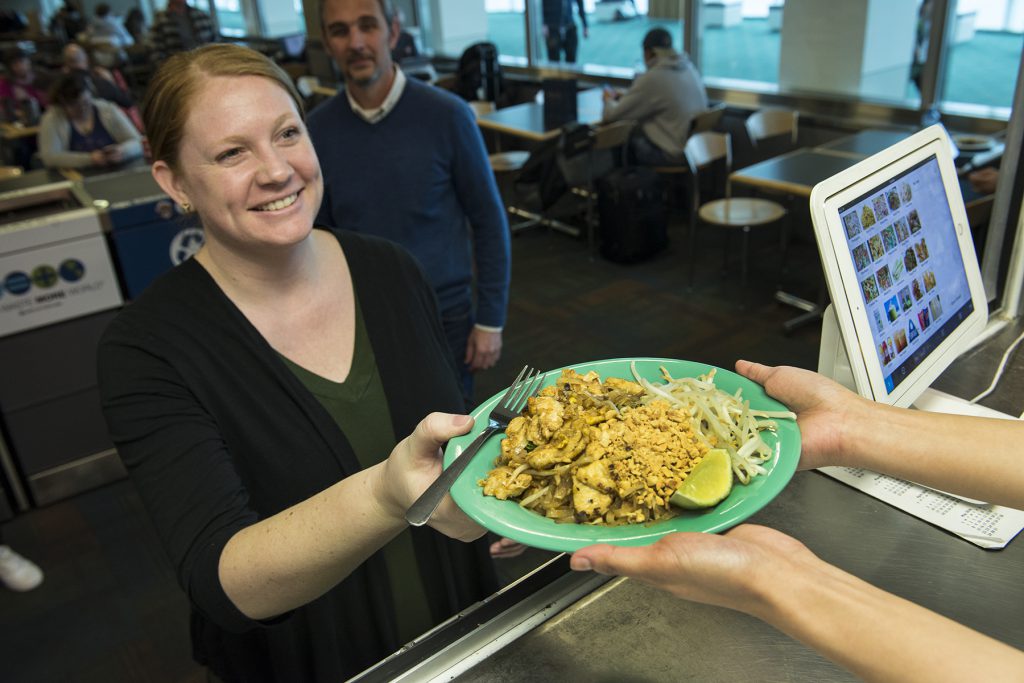
9. Recycle Right
Know what goes in mixed recycling at PDX, including newspapers, magazines, cardboard, cartons (i.e. juice and milk), plastic drink bottles, and cans.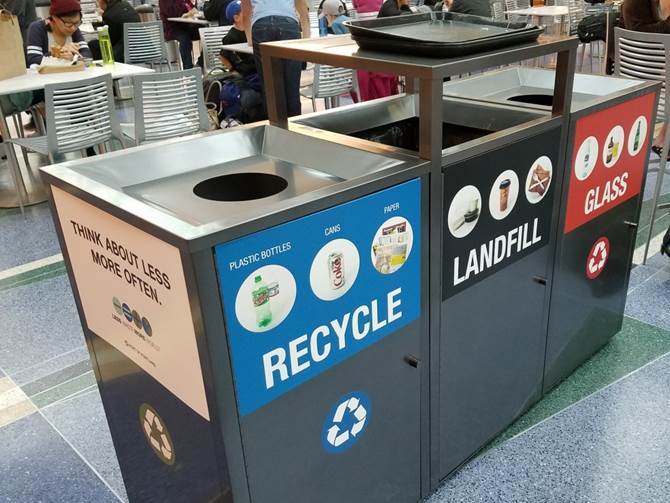
10. Separate Liquids from Landfill
PDX customers recycle over 60 gallons per day back to the water system by using liquid collection stations instead of the landfill before entering security checkpoints.